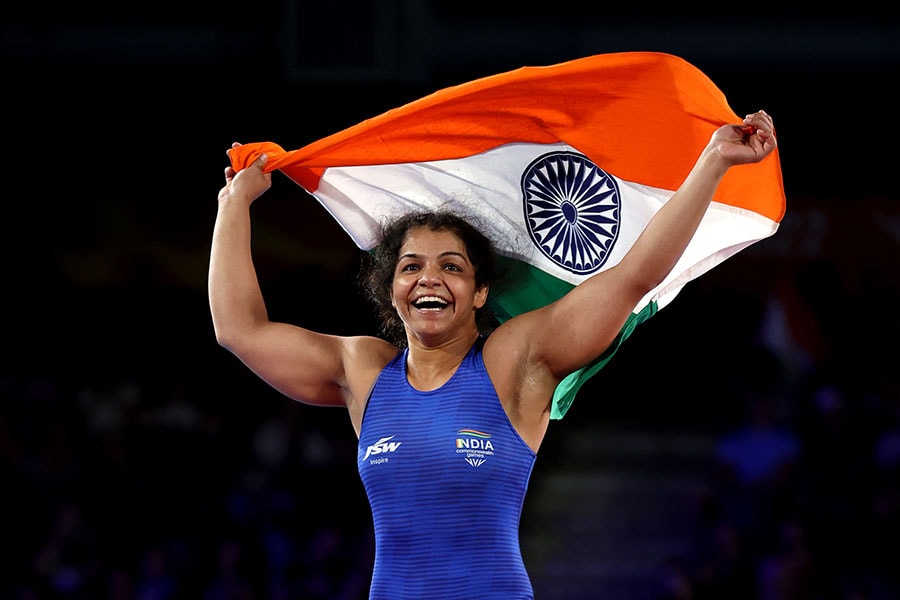
My self-belief helped me overcome tough times: Sakshi Malik
The 30-year-old Commonwealth Games medallist talks about dealing with the pressures of expectations, never giving up on one's dreams and becoming a role model for young girls aspiring to be wrestlers
 Sakshi Malik of Team India celebrates after defeating Ana Godinez Gonzalez (red) of Team Canada during the Women's Freestyle 62 kg Gold Medal match on day eight of the Birmingham 2022 Commonwealth Games at on August 05, 2022 on the Coventry, England. Image Credit: Al Bello/Getty Images
Sakshi Malik of Team India celebrates after defeating Ana Godinez Gonzalez (red) of Team Canada during the Women's Freestyle 62 kg Gold Medal match on day eight of the Birmingham 2022 Commonwealth Games at on August 05, 2022 on the Coventry, England. Image Credit: Al Bello/Getty Images
Q. What inspired you to take up wrestling?
I was interested in sports from the beginning. In school, every time there was some sports activity, I'd want to take part in it. That's how I got interested in sports… I'd always come first in any sports-related activity, be it sprints, shotput or kho kho. I would perform well and got a lot of joy out of the medals I won at school.
Eventually, I knew that I needed to pick up a sport out of which I could make a career. Luckily, close to home there was a stadium where there was wrestling. Till then, I didn't even know it was called wrestling. I tried my hand at lots of other sports, but something about wrestling just clicked and I told my parents that I wanted to pursue that sport. That's when I found out that my grandfather used to wrestle in the village dangals [wrestling competitions] as well.








